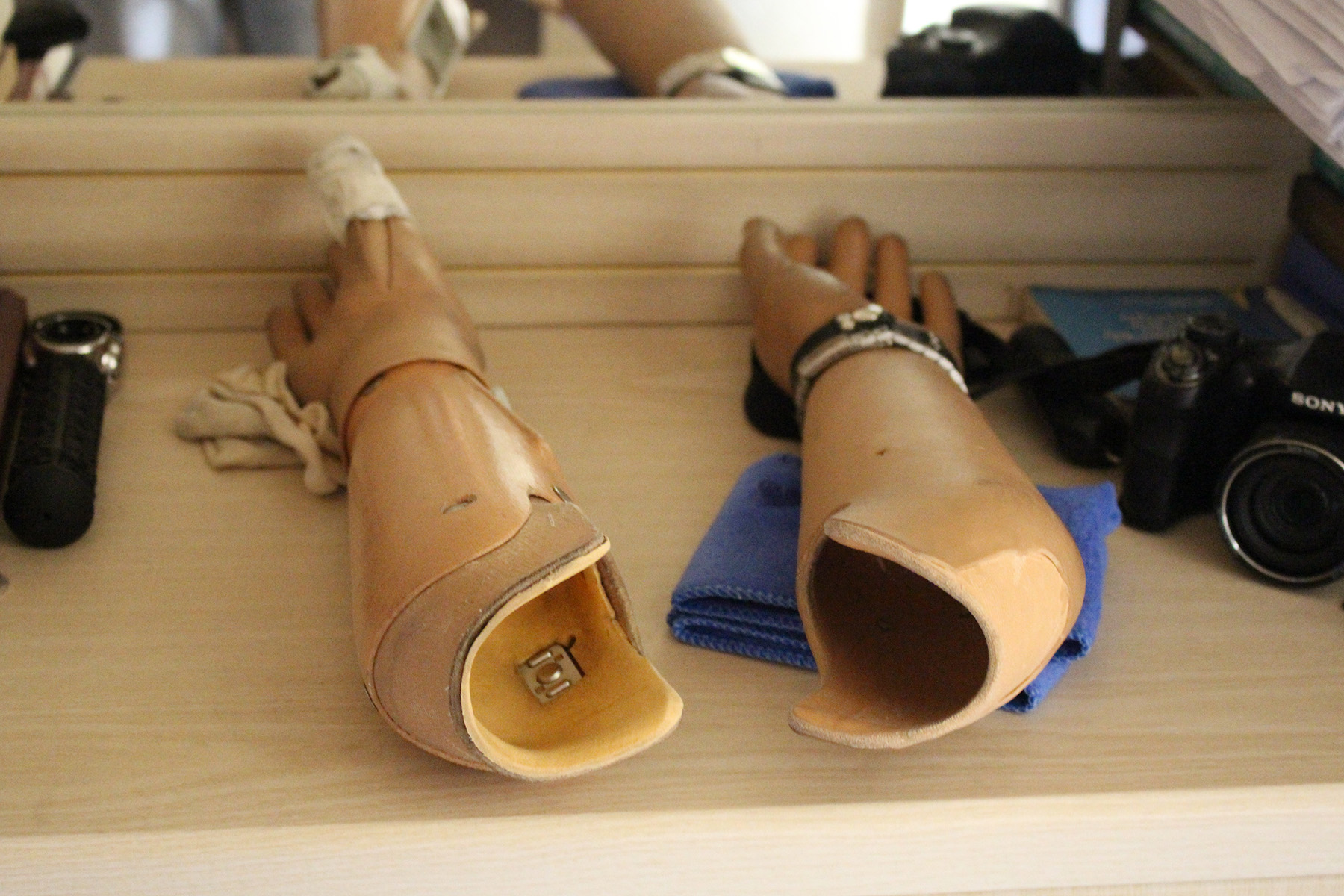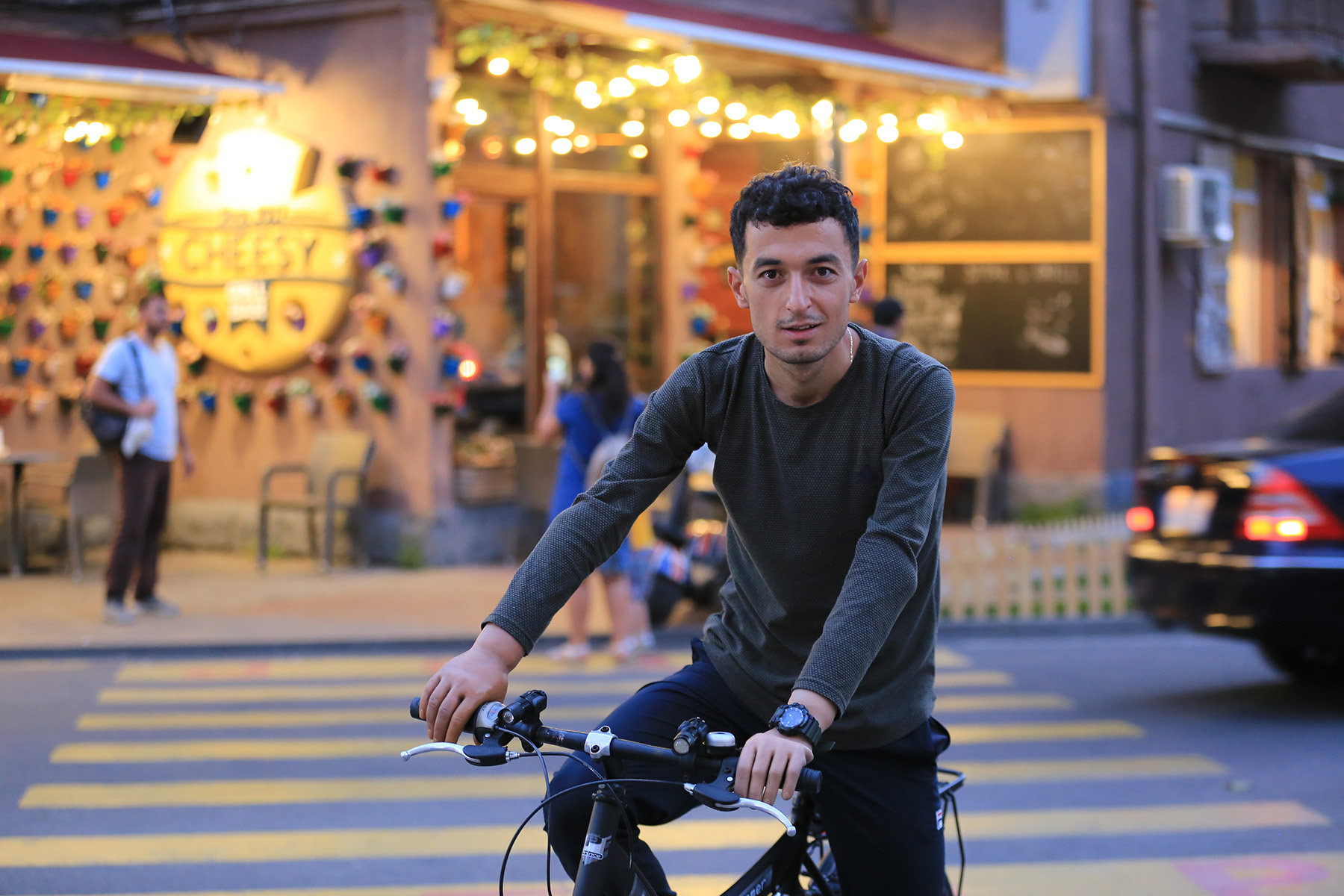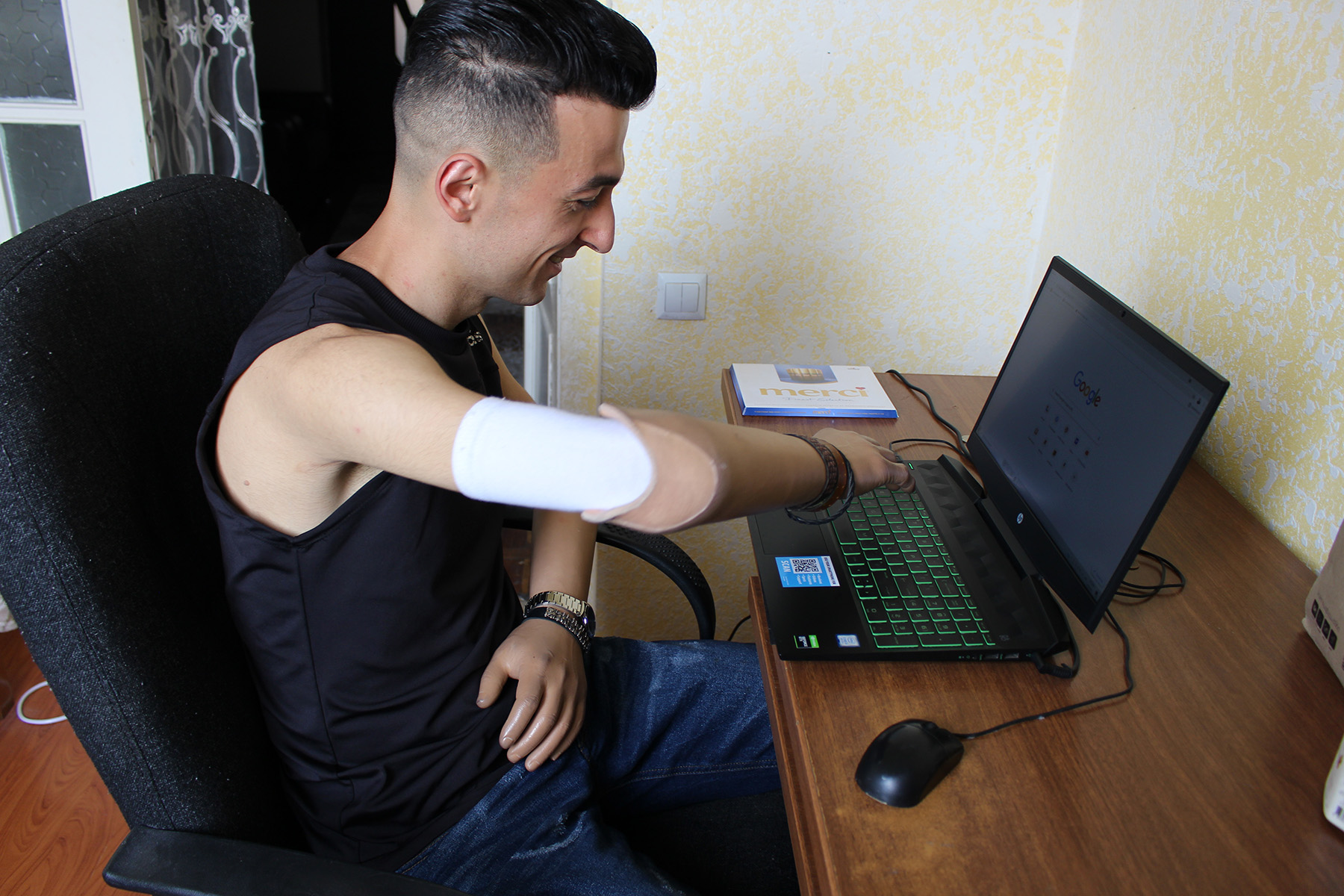
Thirty-year-old linguist and translator Artyom Arakelyan lost his hands in an accident when he was twelve. Though the disability has caused him psychological pain, it has not prevented him from becoming a translator, football coach, and amateur pianist.
‘I live in Yerevan with my mother, my sister, and my brother. I work for the Football Federation of the Republic of Armenia as the coordinator of football popularisation. Along with my work, I also work out, play football, ride a bike, and swim. Last year, during quarantine, when we were stuck at home, I learned to play the piano online. I like to try myself in different fields. Now I’m trying to learn how to drive a car. Not everything I just listed came to me easily. Only by overcoming a great amount of fear did I get on a bike or enter the water. And when I overcame my own fear, I won a victory over myself, and that achievement became even dearer to me.’
‘I was 12 years old when my friends and I entered the electrical substation. I was also a naughty child. I lost my father at the age of 6, and it was probably the lack of a father that resulted in me looking for adventures.’
‘I was electrocuted, I lost my hands […] At first, I had serious psychological problems, it was difficult to even wear prostheses. But I was a little boy and my family said I should wear them and I did, that’s it. The older you get, the harder it is to overcome that psychological complex. I know many people who refuse to wear a prosthesis or use a wheelchair. It is a psychological problem that, although difficult, must be overcome.
‘The significance of the prosthesis should not be underestimated.’


‘Right after the accident happened I would always see it in my dreams. I couldn’t sleep. It was hard to go to school, my classmates avoided me. Often my teachers would get confused and didn’t know how to react to me.’
‘Our school principal came to the rescue. He insisted that I should keep going to school and continue my studies.’
‘There was a problem in the schoolyard as well. At first, when I would go out, familiar children would avoid contact with me and run away when they saw me — as if I was some incomprehensible monster. I became withdrawn, I did not communicate easily with people.’
‘I have overcome a lot of fears now, but there are still psychological problems, and trauma left its indelible imprint. To be honest, there are moments when I am tense, sad, upset, ashamed.’
‘Whenever I had to do something, I always left it for “later”. I expected that “later” would come and it would be better. But that “later” did not come, and my time was just passing. When you are honest with yourself, you realise that this is the moment to act and to live, because that “later” may not come, and life will pass and it will end.’
‘In 2008 I entered the Brusov State University of Languages. I am a linguist by profession. I chose my profession on the advice of my family. My grandmother used to say, “Since you cannot do a physical job, choose a mental one”. Life at university is easier. At first, it was hard to write a lecture, but I learned. Of course, it was hard, but not insurmountable. I’m the kind of person who does not like to go approach someone and say, “You know, I have a problem, I can’t do this thing”. I always try to overcome my problem in silence.’
‘After receiving my education, I have done freelance work, and now I am an English translator.’

‘I like to communicate with people, to travel. I lived in Germany for a short time, where I underwent rehabilitation. But I can’t imagine myself living abroad. I love my country. I love my current job. And I have plans for football — of all the things I do, coaching is my favourite.’
‘I haven’t arranged my personal life yet. Maybe I haven’t yet found the one with whom I will live my whole life. I want to create my own family and have children. I love children very much.’
‘I am sometimes told that I am a motivator, that they are thankful that I am exemplary. No, I don’t do anything special, I just live, I have adapted to my metal hands and live. Of course, I don’t mind motivating the other person, I help, it is nice, but whatever I do, I don’t make a special show of it, I don’t do it specifically to motivate anyone. First of all, I do it for myself. And I never reserve the right to tell another person that if I can do this, they should be able to as well, just because they have hands. It is wrong to say that. We can never know what problems and what pains another person carries.’
‘We live in an era of opportunities. Nothing is almost impossible today. Regardless of the problems we face, we must rediscover ourselves and live. Life passes and the opportunities that exist today will not exist tomorrow, just as the opportunities of the past do not exist today. You must trust yourself and your decisions. A lot of good people and sunny days are ahead. Life goes on, always.’








